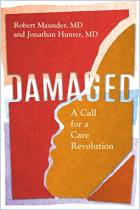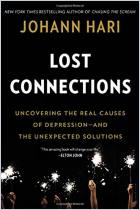Melden Sie sich bei getAbstract an, um die Zusammenfassung zu erhalten.

Melden Sie sich bei getAbstract an, um die Zusammenfassung zu erhalten.
Lauren Zanolli
Can People Be Saved from a Terrible Childhood?
The Guardian, 2018
Was ist drin?
How many ACEs (”adverse childhood experiences”) have you had?
Recommendation
Sabrina Bugget-Kellum had recently taken custody of her grandchildren when she heard about Attachment and Biobehavioral Catch-up (ABC), a program designed to help caregivers meet the needs of children who had experienced trauma. Sabrina’s grandchildren fitted that description, as their father was incarcerated and their mother was unstable. ABC gave her the training that enabled her to move forward with confidence, and she now works as a parent coach for the program. Writing for The Guardian, Lauren Zanolli reports how organizations across the United States are taking an intergenerational approach to break cycles of trauma and abuse.
Summary
About the Author
Lauren Zanolli is a freelance writer based in New Orleans, where she reports on environmental issues, cyber security, health care and politics.



















Comment on this summary